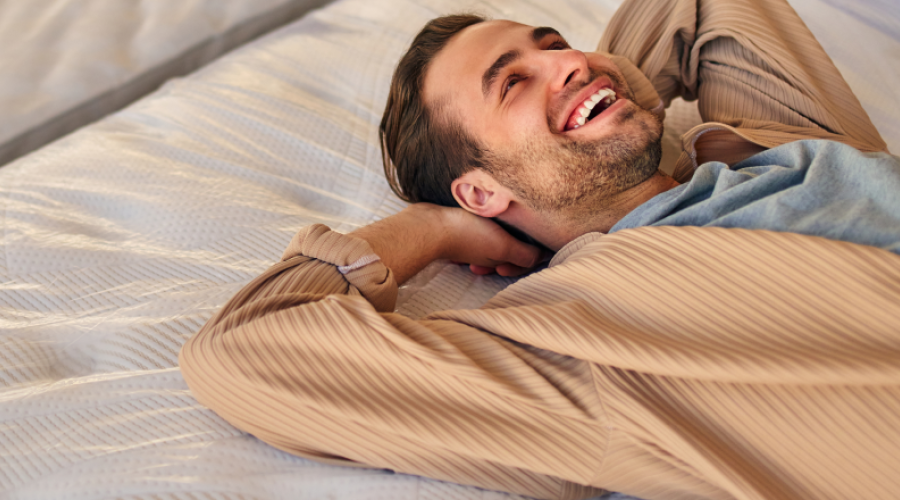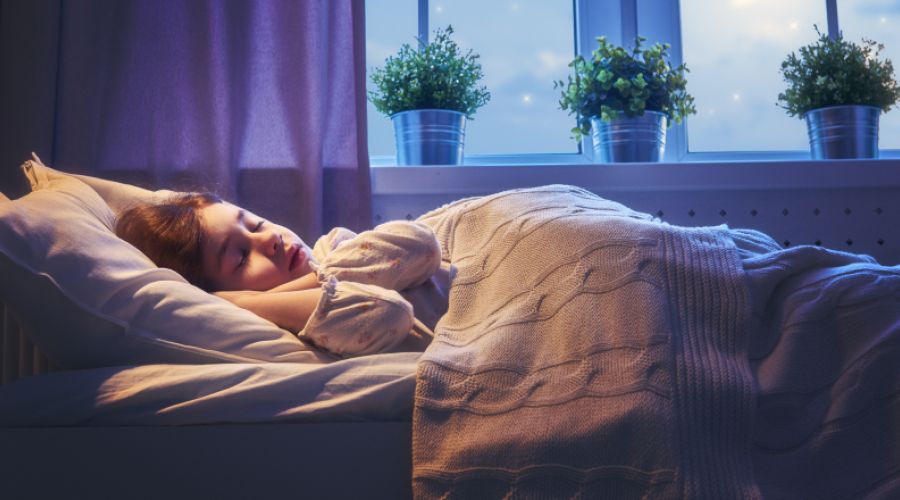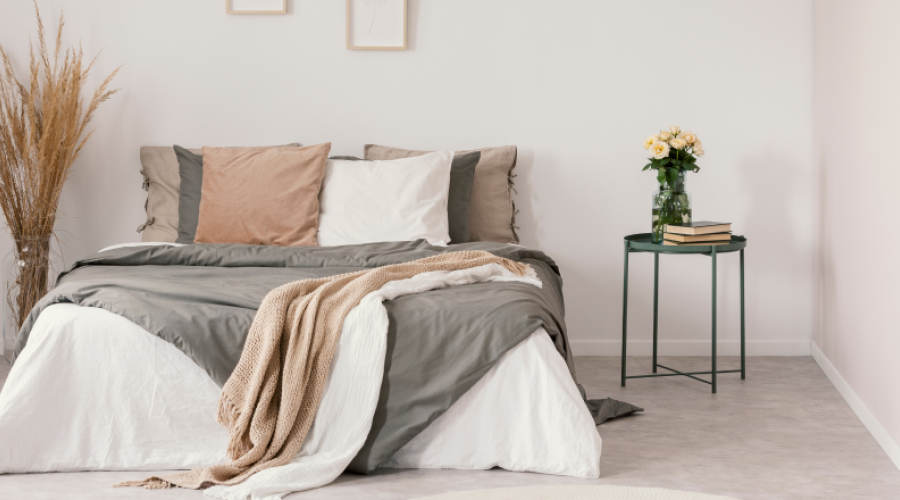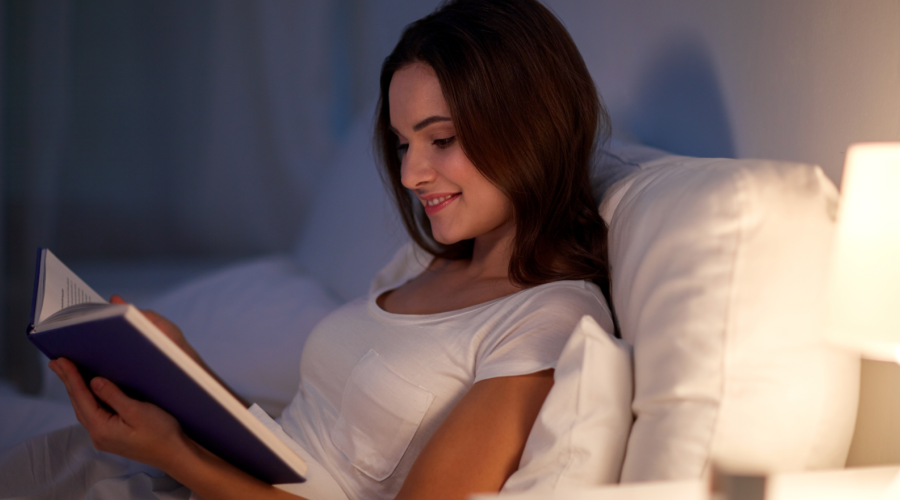Are you sleep deprived?
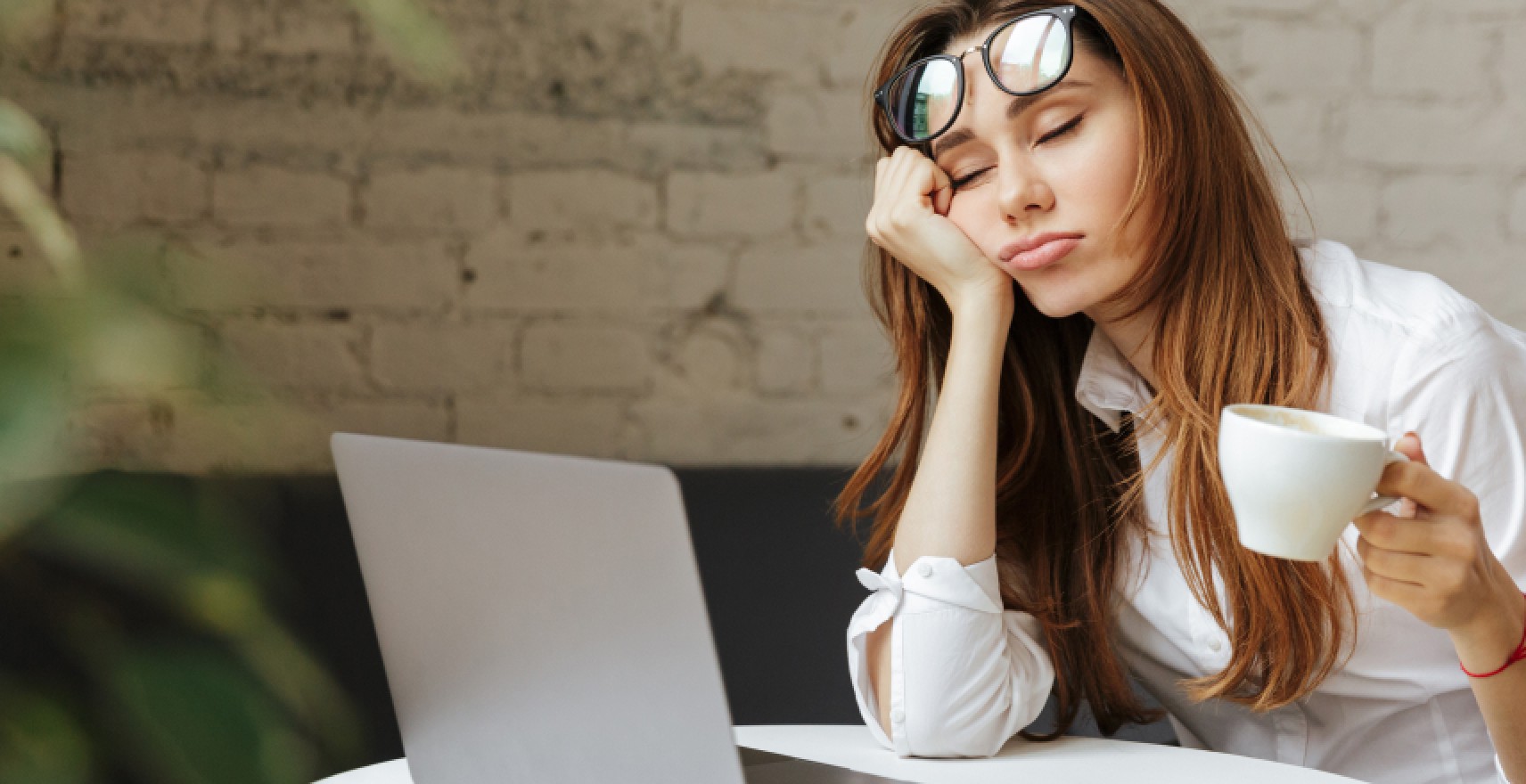
Is the idea of stretching, smiling, and leaping out of bed completely foreign to you? If your daily wake up is more like The Walking Dead and you spend your days feeling exhausted, then you might have started asking yourself if maybe you’re suffering from a little bit of sleep deprivation! If you want to find out whether you’re just tired or it’s sleep deprivation, then we’ve got all the answers you need.
What is sleep deprivation?
Sleep deprivation is just being really tired, right? Not quite. The term sleep deprivation refers to the state caused by getting less than the required amount of sleep1 (which is seven to nine hours for an adult). It’s not the same as being tired or physically fatigued after intense exercise or a long work day.
What causes it?
Or more specifically: what causes the lack of sleep leading to sleep deprivation?
Work: Not everyone works the 9-5. Shift workers disrupt their sleeping cycle regularly and professions like airline crew will deal with constant jet lag.
Sleep disorders: Anyone who suffers from disorders like sleep apnoea, insomnia, or periodic limb movement, will have trouble getting a good night’s sleep2.
Sleep hygiene: Your nighttime habits might be making it difficult to fall asleep. These habits could include drinking alcohol or coffee, or smoking cigarettes right before bed.
Illness: Everyone knows the awful feeling of trying to sleep when you have the flu. Colds, flus, and other illnesses like tonsillitis make it difficult to breathe and this can make sleep harder.
Babies: There’s one thing that most people go through: getting up all night to look after a baby. Parents always experience sleep deprivation during this time.
Medication: Medication for disorders like epilepsy or ADHD can cause insomnia.
Choice: It’s common for adults to choose to stay up late. You may not realise how important it is to get proper sleep and prefer to read a book or socialise.
Environment: It can be hard to sleep properly if your bedroom is too hot or cold, or there is a lot of noise outside.
How do you know if you are sleep deprived?
What are the symptoms?
Figuring out whether you’re sleep deprived is more complicated than just seeing if you feel tired. Do you really have sleep deprivation or has your first run in weeks (okay, months) just knocked you around?
Signs you are sleep deprived3:
Endless yawning through the day
Feeling emotional
Getting easily frustrated
Having trouble concentrating
Falling asleep when not doing anything, e.g. sitting on the train
Feeling groggy and zoning out all day
If experiencing a variety of these symptoms, then it could be a sign you’re not getting enough shut eye!
How to know if you are sleep deprived:
If you think you might be sleep deprived, then we’d suggest tracking your sleep. Take the time to think about what time you head to bed and wake up in the morning. If you’re not allowing yourself enough time for adequate sleep, you may need to adjust your sleep schedule! You should also think about how long it takes you to get to sleep. You can test this at-home with the ‘spoon test’ or the ‘sleep onset latency test4’.
Here’s what you need to do:
-
Conduct the test during the day
-
Lay down at the edge of the bed in a dark room
-
Put a metal tray on the floor next to you and hold a metal spoon over it
-
Check the time
-
Close your eyes
-
When you fall asleep, your hand will lose its grip on the spoon and it will crash onto the tray - therefore waking you up
-
When this happens, check the time
If it takes you a long time to fall asleep, it may be a sign that you need to work on setting your bedroom up for a better night’s sleep - or that there might be something else going on! If you think there may be an underlying health condition that is interfering with your sleep, visit a doctor. They will diagnose sleep deprivation by discussing your sleeping patterns and how you’re feeling. This will often involve filling out a sleep diary or completing a sleep questionnaire.
What are the effects of not getting enough sleep?
Short-term
The short term side effects of sleep deprivation are basically the same as the signs you look for when diagnosing it. Insufficient sleep or lack of quality sleep will make you feel fatigued and stressed, and you may experience memory and performance deficiency. In fact, your reaction times are impacted the same amount as if you had a BAC of 0.055.
Long-term
Here’s what happens when you are sleep deprived long term:
Immunodeficiency: Lack of sleep can take its toll on your immune system, leading to worse functionality and a poor response to vaccines6.
Cardiovascular problems: Sleep deficiency may disrupt parts of the brain which regulate the circulatory system and cause inflammation - this makes a blood clot more likely. So, there’s a higher chance of coronary heart disease, heart attack, stroke, and high blood pressure7.
Mental health disorders: It’s normal to feel grumpy or emotional when you’re over-tired. But long-term sleep deprivation damages your mental health much more and can lead to clinical disorders like depression, anxiety, and bipolar disorder.
Diabetes: Insufficient sleep can affect your body’s ability to process glucose, which increases the risk of conditions like diabetes9.
Weight gain: It’s pretty relatable - you’ve had a bad night’s sleep and are feeling irritable, so you get a nice, big lunch to cheer yourself up. The problem is that when people consume more calories and carbohydrates due to regular sleep deprivation, it can lead to obesity and difficulty maintaining a healthy weight9.
What to do if you are sleep deprived
How mattress type can affect your sleep
Remember how we mentioned ‘sleep quality’ earlier? Well, when you have a disrupted sleep and don’t experience deep sleep, it can have the same effect as staying up. And your mattress could easily be the cause. If you’re sleeping on the wrong sort of mattress, then it can lead to back pain and discomfort - which makes it hard to fall asleep properly. Have you ever gone to bed at the right time, slept for eight hours, and then woken up feeling awful? It’s probably broken sleep caused by sleeping on an old mattress or the wrong mattress for your sleeping position. Just find out what’s the right mattress for your sleeping position and you should be able to stop your sleep deprivation before it becomes long term.
Tips for healthy sleep
If the reason you’re sleep deprived is unavoidable - like work or medication - then there are still things you can do to make the sleep deeper and healthier. And for those who can avoid the cause of their sleep deprivation, but are finding it difficult to break the habit, we’ve got some useful tips to help you make the change.
Create comfort: Spend time optimising the temperature in your bedroom, use blockout curtains to reduce the light, and look into insulation for muffling outside noise.
Reduce stimulants: Don’t drink alcohol, have any caffeine, smoke cigarettes, or take certain medications right before bed.
Wind down: Make a habit of putting away electronic devices and spending a good amount of time relaxing and winding down before going to sleep.
Buy a new mattress: Replace the old or uncomfortable one you have now and improve your chances of good sleep.
Make sleep a priority: Change your mindset and choose to go to sleep earlier - you won’t regret it!
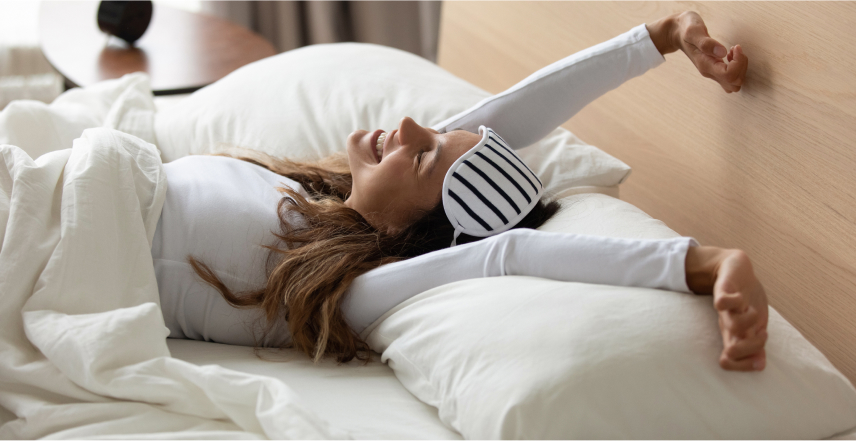
Keen to upgrade your mattress and your sleep?
If your mattress is causing sleep deprivation and you need advice for buying a guaranteed good night’s sleep, then head to our handy mattress selector or come for a chat with our team in-store.
Sources
1 National Sleep Foundation's sleep time duration recommendations: methodology and results summary, Sleep Health, 2015 Mar;1(1):40-43. doi: 10.1016/j.sleh.2014.12.010. Epub 2015 Jan 8.
2 American Academy of Sleep Medicine. (2014). The International Classification of Sleep Disorders – Third Edition (ICSD-3). Darien, IL.
3 Pires, G. N., Bezerra, A. G., Tufik, S., & Andersen, M. L. (2016). Effects of acute sleep deprivation on state anxiety levels: a systematic review and meta-analysis. Sleep medicine, 24, 109–118 https://doi.org/10.1016/j.sleep.2016.07.019
4 How to interpret the results of a sleep studyJ Community Hosp Intern Med Perspect. 2014; 4(5): 10.3402/jchimp.v4.24983. Published online 2014 Nov 25. doi: 10.3402/jchimp.v4.24983
5 Saddichha S. (2010). Diagnosis and treatment of chronic insomnia. DOI: 10.4103/0972-2327.64628
6 Besedovsky, L., Lange, T., & Born, J. (2012). Sleep and immune function. Pflugers Archiv : European journal of physiology, 463(1), 121–137. https://doi.org/10.1007/s00424-011-1044-0
7 Grandner, M. A., Alfonso-Miller, P., Fernandez-Mendoza, J., Shetty, S., Shenoy, S., & Combs, D. (2016). Sleep: important considerations for the prevention of cardiovascular disease. Current opinion in cardiology, 31(5), 551–565. https://doi.org/10.1097/HCO.0000000000000324
8 Kim, T. W., Jeong, J. H., & Hong, S. C. (2015). The impact of sleep and circadian disturbance on hormones and metabolism. International journal of endocrinology, 2015, 591729. https://doi.org/10.1155/2015/591729
9 Spiegel, K., Tasali, E., Leproult, R., & Van Cauter, E. (2009). Effects of poor and short sleep on glucose metabolism and obesity risk. Nature reviews. Endocrinology, 5(5), 253–261
Wake up to savings!
Subscribe now for exclusive mattress, furniture and bedding deals.
Guaranteed next day delivery now available!*
Need your new mattress sooner? Take advantage of our Bedshed Express shipping option at checkout. Selective Dreamsense and Insignia Mattresses only.

Bedshed is one of Australia's largest mattress, bedding and bedroom furniture retailers. We carry ranges of beds, bedroom suites, children's bedroom furniture, headboards & bases and mattresses from brands like Sealy, Sleepmaker, Tempur, Kingsdown, Dreamsense and Insignia, as well as a wide range of manchester and pillows.
Tools and Blog
About Bedshed
©2024 Bedshed Franchising Pty Ltd
*In selected stores only, not available online
